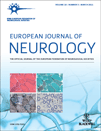Adaptation of Addenbrooke’s Cognitive Examination-Revised for the Greek population
Abstract
Background/Purpose: Addenbrooke’s Cognitive Examination-Revised [1] is a highly sensitive and specific bedside test for the diagnosis of dementia. The aim of this study was to validate a Greek version of this simple, bedside instrument and to investigate its psychometric properties.
Method: We translated and administered the Greek version of the ACE-R to 95 individuals comprising two groups: a dementia group (n = 35) and an age-matched and education-matched healthy control group (n = 60).
Results: Our results suggest high internal consistency and very good sensitivity, specificity and negative predictive value, but only adequate positive predictive value for the ACE-R, with excellent diagnostic accuracy. In our sample, the ratio of verbal fluency plus language scores to orientation plus memory (VLOM) subscore failed to discriminate patients in the target dementia group.
Conclusion: The present findings support the usefulness of the ACE-R as a brief dementia screening tool in clinical practice. Further neuropsychologic evaluation is required for the differential diagnosis of dementia.




